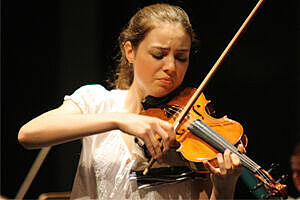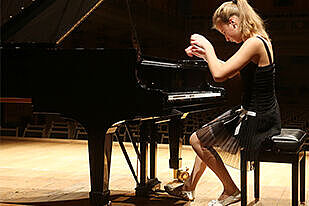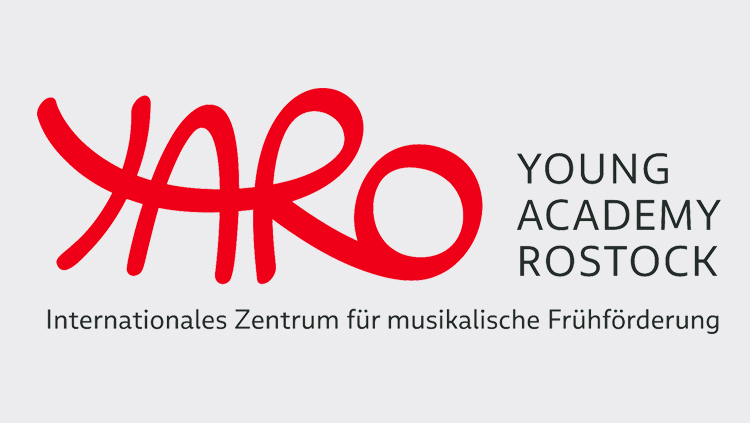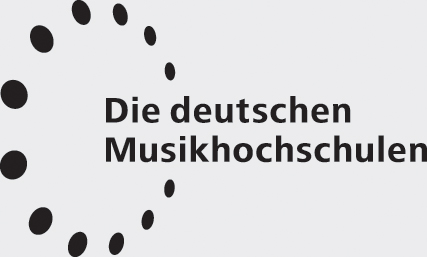Bachelor's Course Percussion/Drums
Entrance Requirements
Applicants who wish to enrol at the University of Music and Theatre have to provide proof of entitlement (normally: “Abitur”– general/specialized higher education entrance qualification or foreign equivalent). As an exception for music studies and on request, this document might be complemented or replaced by a certificate verifying the passed entrance examination to the Hochschule für Musik und Theater Rostock. Applicants also need to have completed their compulsory education or will presumably have done so before they start their studies.
Course Profile
- Official Length of the programme: four years, 240 ECTS-credits
- Start of the course: winter semester as well as summer semester
- Application period: 1 October to 15 November for the summer semester. 1 March to 15 April for the winter semester.
- University Degree: Bachelor of Music
- Teachers
Programme Details
The Major Specialism modules (“Künstlerisches Kernmodul” and “Obligatorische Vertiefung Kernmodul”, semesters 1 – 8) provide the core of the Bachelor’s course. Major studies are closely connected with playing in the orchestra and chamber music ensembles. Furthermore, students expand their piano skills which enables them to accompany their own percussion students when teaching later on.
Music Comprehension I, II, and III (“Musikerschließung I, II, III”, semesters 1 – 6) are basic modules during which students learn to approach music as a whole. The module Music Education (“Musikpädagogik”, semesters 1 – 2) comprises lectures providing basic pedagogical knowledge and the Teaching module (“Obligatorisches Vertiefungsmodul Didaktik”, semesters 5 – 6) builds on it. During the latter, practical school work with learners becomes part of the study. Those students who wish to work as teachers at music schools after graduating can further develop their pedagogical skills by choosing an optional pedagogical module (such as Elementary Music Education “Elementare Musikpädagogik”, semesters 5 – 6).
Apart from the mentioned module, there are several others that can be chosen from a module catalogue that either aim towards the refinement of artistic skills (for instance Contemporary Music) or a specialisation (for instance Leading of Ensembles, World Music). One optional module has to be completed.
The advanced study modules in semesters 5 – 8 allow students to expand the knowledge they acquired during the first study period and develop a solid competence.
To allow for a focussed professional preparation, students will choose their specialisation subject in the 7th semester – continuing in the 8th – that might either focus on orchestra or solo playing. Through this specialisation, it will be possible to study Drum Set for 2 years (1 year is mandatory) which is a special feature in a classical music course. After two years, students have gained sufficient competence to teach Drum Set at music schools.
The course provides a basis for professional work in orchestras, on the concert stage or in ensembles. Some graduates will also teach at music schools. Those students who stand out through artistic excellence might either pursue their studies and apply for a Master’s course (and maybe also qualify for the 3rd artistic cycle, “Konzertexamen”) or start their career immediately.
After 8 semesters, career opportunities can usually be discussed with the principal instructor who will give appropriate advice. Master’s courses in Orchestra, Chamber Music and Music Education provide interesting options for those graduates who wish to enhance their studies.
Foreign students whose native language is not German must provide evidence that their knowledge of German is sufficient for their chosen course.
For the Bachelor’s degree (Percussion/Drums), students are required to have reached level B2 as defined by the Common European Framework of Reference for Languages.
Applicants’ linguistic competence will be established during the aptitude test.
You will find further information in the Aptitude Test Regulations and Matriculation Regulations (only in German) of Rostock University of Music and Drama.
Please apply via our application website by uploading the required documents and application video by 15th of April for the next winter semester and 15th of November for the next summer semester.
In order to take part in the aptitude test part 1, you need to submit your application as well as several videos according to the regulations of the study course you are applying for.
Round 1:
Please submit 4 video recordings for the aptitude test comprising the following works:
1 etude for snare drum (classics) by your choice, e. g.
- Heinrich Knauer No. 6 from "Praktische Schule für kleine Trommel"
- Eckhardt Keune No.145 from "Schule für kleine Trommel"
1 etude or short performance piece for xylophone by your choice, e. g.
- Morris Goldenberg No. 5 from "Modern School for Xylophone"
1 etude for timpani, e. g.
- Richard Hochrainer No. 56 from Etudes for Timpani Issue 1
1 solo piece for marimba or vibraphone by your choice, e. g.
MARIMBA
- J. S. Bach, one movement from a cello suite
- Nebojša Živković "Iljas"
- Keiko Abe "Frogs"
VIBRAPHON
- Mark Glentworth "Blues for Gilbert"
- David Friedmann "Wind"
Should any of the requested instruments momentarily not be at your disposal please send us the other videos nonetheless.
Each video has to start with a short introduction (your name, your application number, the title of the piece you are about to present). The video has to be filmed in one take and live, which means the material must not be cut or post-edited. There is no need for professional video production. Videos taken with your mobile phone are absolutely fine. However, you should be clearly visible and audible whilst playing your instrument. The video should be framed to show the whole person.
You will receive an e-mail with the results of part 1 of the aptitude test. If you have passed part 1 of the aptitude test, you will be invited to part 2 which will take place in June for the winter semester and in January for the summer semester. The exact dates will be published under apply for studies.
Requirements for the aptitude test part 2:
Snare drum
2 pieces with a medium level of difficulty which represent your current level of proficiency
(e.g. Knauer No. 6, Goldenberg 6/8, Keune, Fink or Wagner, Rudiment)
Xylophon
1 piece with a medium level of difficulty for 2 mallets, one easy orchestral excerpt
(e.g. Goldenberg)
Marimba
1 original piece for 4 mallets of your choice, medium level of difficulty
Timpani
2 pieces (etudes, solo pieces) for 2 timpani of your choice (with drumroll) which represent your current level of proficiency (Knauer, Keune, Krüger etc.)
Possibly one easy sight reading exercise
You will also have to take tests in your respective compulsory subjects (Piano and Music theory). Additionally, foreign students have to pass a German proficiency test.
We look forward to your application.
Application
Click here for the ONLINE APPLICATION and the dates of the APTITUDE TEST.
A fee of 50 Euro is charged for processing your application for admission. Please transfer this amount when you submit your application.
We will gladly advise you personally!
Mrs Dörtje Peters
Study Office for Music
fon +49 381 5108 220
fax +49 381 5108 201
doertje.petershmt-rostockde
Jan-Frederick Behrend, Head of Percussion
Jan-Frederick.Behrendhmt-rostockde
Please visit our University Information Day in April!
Back to DEGREE COURSES







